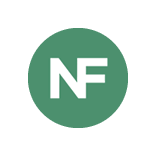The ethics hotlines are a communication mechanism where everyone can report activities or conduct considered dishonest within an organization. It operates independently, guaranteeing the confidentiality and anonymity of those who use it to report. According to ACFE (Report to The Nations) statistics, more than 65% of frauds are detected thanks to anonymous complaints and comments in the corridor.
The North American Sarbanes Oxley Act (SOX) requires the establishment of procedures for the reception, retention and treatment of complaints confidentially and anonymously by employees in relation to questionable acts
This ethics hotline mechanism has made it possible to increase the indicator for detecting dishonest conduct in organizations across the board, regardless of the level of the process, area or person within the company, from the Board of Directors to the Operators.
What about the right to legitimate defense?
Anonymous whistleblowers, once they file their complaint, launch an investigation from the shadows, which could be carried out even without original documentation, extrajudicial testimony, oath or presentation of any material evidence, just a paragraph where it is indicated the alleged dishonest action and this unleashes the generation of the first hypotheses.
The ethics hotline mechanism, as a control that supports what is required by law, for example SOX, does not require requirements for filing the complaint, other than a name, an email and a description of the situation to be reported.
The criminal action for slander or the civil action for non-pecuniary damage due to the actions of the anonymous complainant cannot be filed against a ghost, which is why, although the anonymous complaint mechanism is necessary, it can be used by ill-intentioned people to end the honor and morality of any person in the organization, having said that, wouldn’t the person denounced have the right to know his denouncer to exercise the criminal action of slander or moral damage?
Is it cowardice or fear when denouncing?
Being afraid is not the same as being a coward. Fear is a natural feeling of those who are alive and want to continue being so, it is part of that natural survival instinct, on the other hand, cowardice is typical of those who prefer not to face a situation that does not threaten their survival, bowing their heads or hiding.
But wouldn’t reporting an act of corruption generate fear of reprisals? Fear of being killed? What about all those stories of missing or dead whistleblowers? Could we call a person who decides to make an anonymous report a coward?
The Cambridge Analytica case and its whistleblower
Christopher Wylie, a former employee of Cambridge Analytica denounced in a non-anonymous way the illegal access by the company to personal data of Facebook users, with the purpose of influencing the presidential elections of the United States, also indicating that this data would end because it is in the hands of Russia.
It is clearly a national security situation, where not only a president would be involved, but a large and powerful company, as well as a foreign government considered unpleasant, with which the United States maintains a silent war.
Would not this be enough for Christopher Wylie to feel fear? He could have reported anonymously, presenting the evidence he had anyway and let an investigation begin without exposing himself? Some call him a whistleblower, others brave whistleblower and nobody called a cowardly whistleblower.
What do you think?
Did you know that in some legislations the person who files a complaint for an act of corruption must identify himself? Some administrative regulations declare the requirements that the complaint must contain, one of them, the identification of the complainant.
Do you think there should be regulation on complaints regarding anonymity? Or instead, do you consider that anonymous reporting mechanisms and technologies that allow it to be maintained should be promoted more and more? If you are ever reported and you know that it is a lie, would you feel that you have the right to know the identity of the complainant? discrepancy.
References
(The Washington Post, 2018) How the Cambridge Analytica whistleblower became Facebook’s silent enemy.
About NOFRAUD
NOFRAUD is the company that develops The Fraud Explorer anti-fraud software and supports individuals and companies to face and solve their challenges regarding internal fraud, corruption and corporate abuse. NOFRAUD has created the largest behavioral database of dishonest acts in the world in Spanish and English, which is used by artificial intelligence to find suspicious patterns of corruption within organizations.

We enhance the ability of organizations to increase their profits by removing the possibility for perpetrators to negatively affect revenues through fraud, corruption, corporate abuse and the creation of toxic environments.
Contact me at » jrios@nofraud.la and Visit our site » www.nofraud.la.





